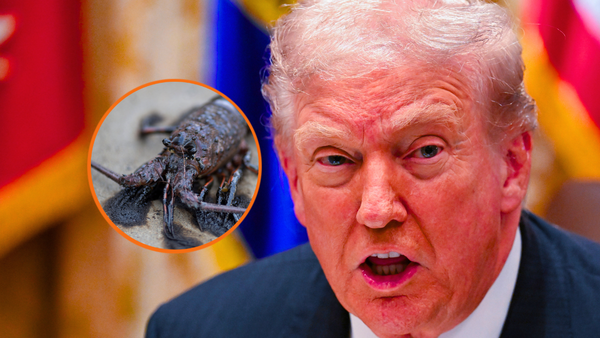With the passing of the GENIUS Act in Congress, stablecoin companies like Tether are rebranding to USAT to anchor themselves as American-based.
Tether is the most important company in crypto that many Americans still know little about. Its dollar-pegged token, known as USDT, is the plumbing for much of the trading that happens on exchanges from Dubai to Seoul. The company says one token equals one dollar. Traders accept that promise every day because speed beats doubt when markets are moving. That quiet trust is the only thing keeping more than $170 billion in tokens lined up neatly at par. It is also the reason the company’s new push into the United States deserves scrutiny.
For years, Tether’s principal corporate entities were set up outside the American regulatory perimeter. The firm’s holding structure ran through the British Virgin Islands, a jurisdiction famous not for daylight but for a kind of shadowed anonymity that has given comfort to the discreet and the dubious alike. The Panama Papers and FinCEN Files showed again and again how the BVI provided cover for shell companies, suspicious transfers and hidden ownership. Offshore is not automatically illegal. It is, however, designed to make visibility difficult, which is the point.
In January, Tether announced that it would complete its relocation to El Salvador, where it had obtained a digital asset license. The company’s own statement described the move as a formal relocation from its earlier offshore base. Reuters has since referred to Tether as El Salvador-based. The shift changes the map on paper. It does not rewrite the past or resolve questions about how the world’s largest dollar token came to be run from a chain of secrecy jurisdictions.
The timing of Tether’s American turn is not an accident. Washington finally wrote stablecoin rules this year. Congress passed the Guiding and Establishing National Innovation for U.S. Stablecoins Act (GENIUS Act), which requires stablecoins offered to Americans to be issued under U.S. law, backed by cash or Treasuries, and subject to oversight. Tether’s answer was a new wrapper called USAT. The company says it will debut for U.S. users later this year. The issuer will be Anchorage Digital Bank, a federally chartered trust bank. The reserves will sit with Cantor Fitzgerald, a Wall Street firm that already helps manage Tether’s Treasury portfolio.
Tether’s history does not read like a company that seeks light unless forced. The token began life in 2014 as Realcoin, a project from Brock Pierce, Reeve Collins and Craig Sellars, before it was pulled into the orbit of Bitfinex, the exchange that has been Tether’s sister operation for most of a decade. The New York Attorney General settled with Tether and Bitfinex in 2021 for $18.5 million after investigating whether the companies misled about reserves and moved client money to cover a hole. That same year the Commodity Futures Trading Commission fined Tether $41 million for misstatements about the composition of its reserves.
The numbers have only grown. Analysts now call Tether one of the largest non-sovereign holders of Treasury bills. Its profits ride on the yield from those bills, a simple but lucrative carry trade. Scale is why its structure matters. If a firm this central to global crypto wants access to American jurisdictions, its partners and pathways can no longer be ignored.
Investors seem to prize scale above all else. Bloomberg reported in September that Tether is raising $20 billion at a $500 billion valuation. That would make it one of the most valuable private companies in the world, on par with SpaceX. Investors love unicorns, no matter how battered their hooves.
Anchorage Digital is the bank Tether chose to front its U.S. push. In April 2022, the OCC issued a consent order stating that Anchorage had failed to implement an adequate anti-money laundering program. The order remained in place for more than three years and was only terminated in August 2025, following remediation. In April, Barron’s reported that the Department of Homeland Security’s El Dorado Task Force had contacted former Anchorage employees as part of an inquiry into the company's practices, which Anchorage disputed.
Despite its name, Anchorage is based in San Francisco. It has an engineering hub in Porto, Portugal, operates a licensed entity in Singapore, and has announced partnerships in Thailand. Its investors include Goldman Sachs and KKR, as well as GIC, Singapore’s sovereign wealth fund. For a company meant to “Americanize” Tether, the profile looks global, not domestic.
Tether has also given the effort a political face. It named Bo Hines to lead USAT. Hines is a former college football player turned congressional candidate who later served as executive director of Trump’s Council of Advisers on Digital Assets. Short stints and unflattering headlines marked his career in politics. During his 2022 campaign, he claimed he and his wife “couldn’t afford to give up a month’s salary,” but Business Insider reported his disclosures listed no salary and showed a family trust fund as his main asset. Local outlets caught him handing out “America First” hats made in China. The Raleigh News & Observer documented Federal Election Commission warnings to his campaign over late filings and noted that he didn’t live in the district where he was running. By 2024, his campaign still carried hundreds of thousands in debt.
Critics note that Hines transitioned from a Trump-endorsed candidate and White House appointee to a spokesperson for Tether, a company now described by Reuters as El Salvador-based. For a firm struggling with perceptions of foreign control, hiring a politically ambitious figure who has jumped quickly from one platform to another raises reputational risks of its own.
The rest of the structure is familiar. Cantor Fitzgerald will hold USAT’s reserves. The Wall Street Journal previously reported that Cantor oversaw tens of billions of Tether’s Treasuries. Using Cantor is not cosmetic. It is political insurance.
The unavoidable fact is that USAT is not a new company. It is a wrapper. Tether still has not produced a full independent audit. It continues to issue quarterly attestations from BDO Italia, which are not audits.
Stablecoins work when users stop thinking about them. They should be boring, predictable, and trustworthy. Tether’s offshore past, Anchorage’s regulatory baggage, and the choice of a political figure with a checkered campaign record all suggest a different picture. If Tether wants USAT to be taken seriously inside U.S. markets, it will have to embrace the transparency it has spent a decade resisting. Once you come inside the regulatory perimeter, the rules do not bend to you. You bend to them.
Article Sources:
https://www.bloomberg.com/news/articles/2025-09-24/tether-s-500-billion-valuation-play-how-it-got-there-usdt
https://www.reuters.com/technology/crypto-firm-tether-its-founders-finalising-move-el-salvador-2025-01-13/
https://www.bloomberg.com/news/articles/2025-09-23/crypto-giant-tether-seeks-500-billion-valuation-in-major-raise
https://ag.ny.gov/press-release/2021/attorney-general-james-ends-virtual-currency-trading-platform-bitfinexs-illegal?utm_source=chatgpt.com
https://www.occ.gov/news-issuances/news-releases/2022/nr-occ-2022-41.html
https://subscriber.politicopro.com/article/2025/09/ex-white-house-official-to-lead-u-s-stablecoin-expansion-for-crypto-firm-tether-00560704
https://www.ainvest.com/news/tether-mints-2-billion-usdt-audit-concerns-regulatory-pressure-2506/
https://www.cftc.gov/PressRoom/PressReleases/8450-21?utm_source=chatgpt.com
https://www.ainvest.com/news/tether-usat-navigating-regulations-sustain-global-stablecoin-dominance-2509/








